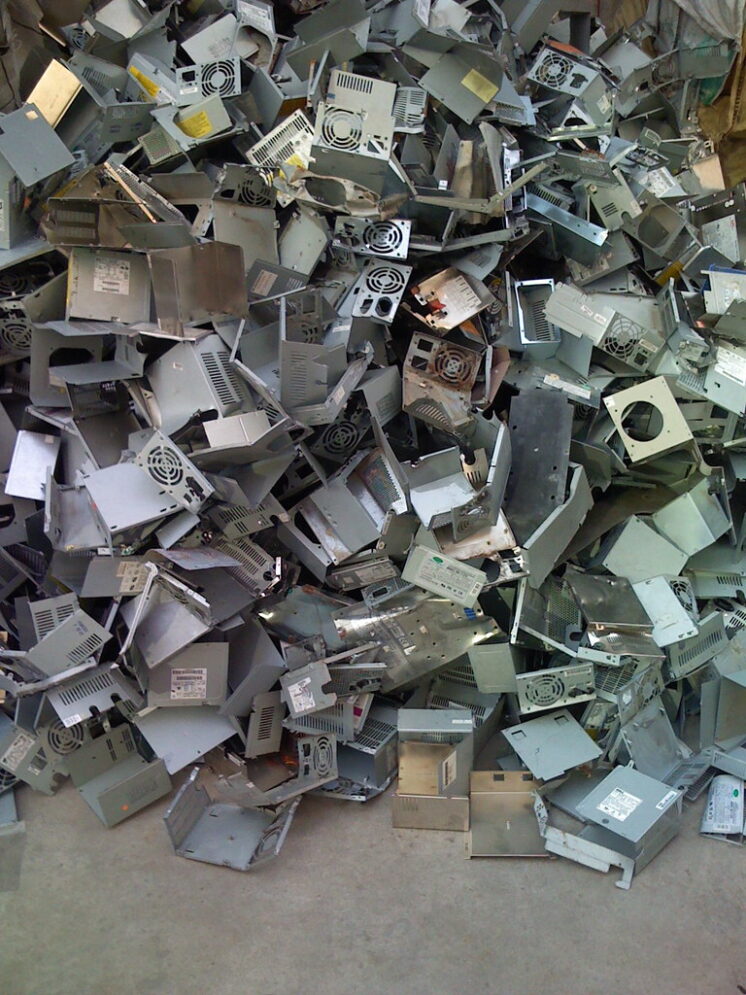PRESSURE group, Matabeleland Institute for Human Rights (MIHR), has added its voice to growing calls on government to expedite the drafting and actualisation of the electronic waste (e-waste) policy saying the continued approach was posing a serious public health catastrophe.
 Photo: "Guiyu e-waste" by Bert van Dijk is licensed under CC BY-NC-SA 2.0
Photo: "Guiyu e-waste" by Bert van Dijk is licensed under CC BY-NC-SA 2.0The policy will govern the disposal, sorting, and recycling of e-waste.
E-waste refers to materials thrown off disused electronic gadgets like computers, cell phones, television sets, which if dumped irregularly, can emit harmful gases. The calls by MIHR follow a recent report by the World Health Organisation (WHO) revealing disturbing evidence of the hazardous impact of e-waste on the health of children and pregnant women.
The WHO report released in June this year, showed that e-waste emissions expose unborn babies and children to lung malfunctions and respiratory problems including cough, wheezing and asthma, which have been linked to chromium, manganese and lead exposure.
Other linkages include impaired thyroid function, especially associated with exposure to some organic chemical compounds, impaired cardiovascular system function, in particular in association with exposure to lead and PAHs and DNA damage.
“As MIHR we reiterate the call we made when we petitioned Parliament of Zimbabwe on 20 May 2021 and when we gave oral evidence to the Parliamentary Portfolio Committee on Environment and Tourism on 26 July 2021 that Zimbabwe should enact a national e-waste policy to regulate the disposal, sorting, and recycling of e-waste in the country. The e-waste policy will also be integral in controlling the importation of electric and electronic equipment that is already at its end of shelf life or that is recycled,” MIHR Coordinator Khumbulani Maphosa said in an interview this week.
“The Parliament of Zimbabwe has adopted for consideration the petition filed by a Bulawayo based human rights group, Matabeleland Institution for Human rights seeking the lower house to expeditiously enact a national e-waste policy to regulate and coordinate the documentation, disposal, handling and recycling of e-waste in Zimbabwe,” Maphosa said.
“They also prayed for a policy that prohibits the international dumping of obsolete electronic and electric equipment to Zimbabwe through importations.”











